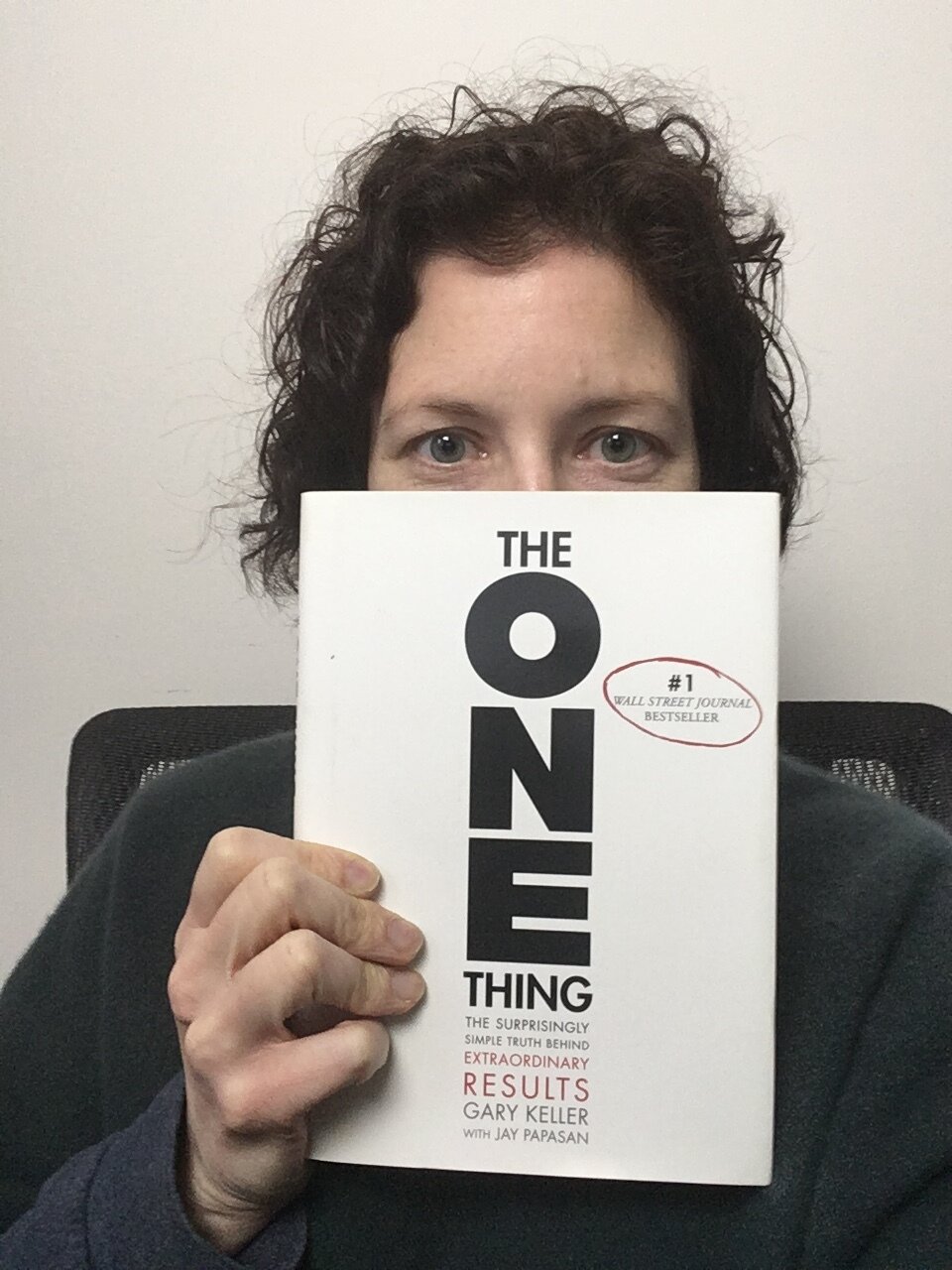I used to think perfectionism and the pursuit of excellence were the same.
I wore perfectionism as a badge of honor. I focused on never making a mistake. I stayed late quadruple-checking my work before a deadline.
If someone criticized my work, I took it personally (and defensively), because I had worked so hard to make it perfect. I prided myself on not missing anything and getting everything right. I overanalyzed and overworked the details until I deemed it perfectly complete.
If someone else’s work wasn’t up to my level, even if it was only missing one tiny detail, I judged them harshly, just the same way as I would judge myself.
My self-worth was tied up in that perfect level of achievement, and I was exhausting myself and alienating those around me by setting an expectation of “perfect.” I had confused perfectionism with excellence, and my health, my relationships, and my effectiveness at work were paying the price.
Today I want to share with you how I learned perfectionism was holding me back, the truth about it, and six ways I’ve learned to combat it.
MY TURNING POINT
I was staying late again at the office, re-running calculations on a typical interior beam that needed to moved 6 inches for a floor opening. That had created a domino effect on the surrounding beams so they needed to be checked too.
I had modeled that beam in one of our engineering analysis softwares. I decided that this change meant I needed to update the framing in the model and rerun the analysis so it perfectly matched the new condition.
Five minutes later, I had fixed the model geometry. I hit the software “start analysis” button in the program. I got an error, so I deleted the beam and remodeled it again. I got an error again.
I then tried remodeling the support conditions and the edge of the floor slab for the opening. I hit the analysis button, watched the analysis wheel turn………..and got ten more errors for my efforts.
As expletives were whispered under my breath, I continued to troubleshoot. At some point, I shot my husband a text saying that I wouldn’t be home for dinner that night.
Three hours later, I ended up deleting and remodeling the entire floor, all because I was determined that my model would be perfect for that minor shift.
This is exactly the sort of perfectionist behavior that I repeated over and over again, until, exhausted after one too many late nights, I thought to myself: “There has to be a better way.”
FOUR THINGS YOU NEED TO KNOW ABOUT PERFECTIONISM
Using my trusty Google search engine, I did the research and found out my perfectionist tendencies are extremely common in high-performing women, especially in male-dominated fields. I learned perfectionism is often driven by internal pressures like fear of failure and being judged. Perfectionism often results in a lack of fulfillment, no matter how much you may have achieved.
Here are 4 things you need to know about perfectionism:
1. PERFECTIONISM IS LEARNED IN SCHOOL.
In school, success is defined by having high grades, resulting from getting the exact right answer on our homework, projects, and exams. Getting the perfect answer to the decimal degree is usually the only way you get an A. As a result, we spend 16 years (or more for advanced degrees) in an educational system where we are rewarded for perfection.
Do you recall points being deducted in an exam for a very minor error? I do too, reinforcing the message that we must be perfect to succeed.
The perfectionism habits that served us so well in school are detrimental to both our career paths and our overall fulfillment at work. If we don't teach both ourselves and other engineers to value striving for excellence and "good enough" over perfectionism, the result is burn-out and retention issues, like the 1 in 10 men and 1 in 4 women currently leaving engineering after the age of 30.
2. WORK ENVIRONMENTS REINFORCE & TRIGGER PERFECTIONISM.
Have you ever had parts of your work nit-picked to death on minutiae that didn’t matter in the scheme of things? Then you, my friend, were on the receiving end of a perfectionist critique.
I’ve even had this happen in unpaid situations, for example when I volunteered with other engineers.
Engineering work environments often trigger perfectionist tendencies. Certainly, in some cases, being exactly correct really is a life and death situation in engineering design. However, in most common design scenarios, and the projects we work on 95% of the time, this isn't the case. The challenges come when:
We don’t differentiate the 5% that needs to be exact from the remaining 95%.
We hold others at work to unrealistic “perfect” standards.
In a 2011 research paper, Role of Perfectionism in the Workplace, the authors wrote, “Perfectionism is regularly thought of by managers and employees alike as a positive trait which enables an employee to strive toward a perfect performance/product.” That has been my own experience in the field of engineering.
When we combine the idea that some organizations see perfectionism as good with well-documented evidence that engineering managers often lack the tools and training they need to manage a team, we have the perfect recipe for low and under-performing teams and individuals.
Why? Because it’s not possible to build trust with your team if those on your team believe they have to be perfect to work with you. Do you want to work with someone who is going to take your head off for the tiniest error? Can you possibly trust them when you need someone to troubleshoot with you?
ARE YOU FINDING THIS BLOG HELPFUL? WANT TO GET THE LATEST UPDATES, EXCLUSIVE MEMBERS-ONLY TIPS, AND CONNECT WITH OUR MOVEMENT OF EMPOWERED WOMEN IN ENGINEERING? SIGN UP FOR OUR MAILING LIST BELOW!
3. PERFECTIONISM KEEPS YOU FROM GETTING THINGS DONE.
Do you know any engineers who are constantly struggling to complete designs on time, or have a track record of taking much longer than expected their work? What about that person who tells you they’ll have something done on Monday, and then two weeks later it’s not done because they had to recheck something 5 times?
What do you think that engineer’s career prospects and ability to realize his/her career aspirations will be?
As we explored in #1, our education has taught us that to get the right answer. Consideration for 100% accuracy – and doing and re-doing the problem as many times as needed until it is correct - always overrules other considerations.
The work world operates much differently. The business realities of engineering mean that we never have unlimited time to complete the work. We cannot rework the designs over and over again and still keep our jobs.
At work, every project is delivered under a schedule and budget constraint. We only have so many billable hours. We are assigned to multiple projects at once. We also need to take care of ourselves, get some sleep, and have a life outside of work.
That means we must excel at working under the project constraints. We must consider questions like "Is revising this design in our scope?" or "How do we balance fee with providing an appropriate design?"
This is where clear communication of expectations must come in. The definition of “complete” and the scope must be clearly defined to those working on the project, otherwise the perfectionist tendencies continue, unchecked.
A very wise mentor once told me, “You can have it fast, cheap, or accurate. Pick two.”
4. ENGINEERS AND WOMEN ARE MORE LIKELY TO BE PERFECTIONISTS.
Engineering training tends to reinforce and lock in perfectionist tendencies. Our equations have a correct answer. (Whether the assumptions we made on the input variables are correct is a discussion for another day.) Engineering books such as the 2018 book, The Perfectionists: How Precision Engineers Created the Modern World, even feature this tendency as something to be celebrated.
Women are also more likely to be perfectionists. In her blog, The Problem of Perfect - how quality is hurting equality and what to do about it, engineer Andi Dumont summarizes research in this area:
“Perfectionism is endemic to how girls are socialized. A study in the UK found that one-quarter of 7-10 year old girls felt they needed to be perfect. In academia this means that one-third of girls feel like they aren't smart, despite 4.0 GPAs. We begin to see the dark side of perfectionism where girls learn the behavioral value of perfectionism in school, beauty, and social circles, but it is inextricable from self-efficacy…. Women need to be 100% sure they meet all the qualifications to apply for a job compared with men who apply after meeting 50%, and then ask for 30% less than men.”
That means that for women who are also engineers, we get served up with a double-whammy of perfectionist tendencies through our social environments that is further reinforced in our engineering training.
When our self-worth is tied up in our ability to get everything right, we see our work as a zero-sum game: one in which we view our work as either perfect or subpar, with no in-between.
That lack of compassion for ourselves often translates into harshness at work. We hold everyone up to our own unrealistic expectations and judge without empathy when the inevitable mistakes surface.
In turn, this undermines our abilities to build the relationships and networks necessary to be successful at work, further reinforcing the likeability versus competence double-bind experienced by women in the workforce.
That tendency also makes it virtually impossible to fully delegate work, because perfectionists truly believe that it won’t be right if they don’t do it themselves.
You aren’t imagining things if you’ve noticed that women in engineering take care of many of the “little things” that their male counterparts delegate, which in part is likely related to perfectionism. In my interview with Christy Zweig Niehues, marketing and research director of Zweig Group during the She Engineers 2019 Virtual Summit, she shared data that for those in executive positions in their architecture, engineering, or construction firms, 19% of men executives have an executive assistant, whereas only 6% of women executives do.
SIX PRACTICAL WAYS TO COMBAT PERFECTIONISM AT WORK
What can you do to stop the cycle of perfectionism for yourself so you can be truly excellent? Here are 6 practical ways to do so:
1.GET CLEAR ON WORK EXPECTATIONS.
Often, these can be established via a discussion with your manager. Questions to ask include:
What tasks do you need to complete?
Are there any “rules of thumb” and/or company standards that your manager would suggest be applied to either design assumptions or the design itself?
What does “successful completion” of your work look like to your manager?
2. GET CLEAR ON WORK CONSTRAINTS.
These can also be established via a discussion with your manager. Questions to ask include:
What are the hours allotted for the completion of your tasks?
At what point should you go to your manager if it looks like things are taking longer than expected?
When are client deadlines?
When are internal QA/QC deadlines or other internal milestones?
What are the required deliverables at each deadline?
Are there any unique requirements or constraints (for example geometric, existing systems, etc.) of the project that must be considered in design?
3. SET INTERIM DEADLINES/CHECKPOINTS FOR EVERYTHING.
Project plan your work (it’s great practice for becoming a project manager, even if you aren’t one yet!) Set deadlines for:
Weekly milestones that you can distill into daily tasks.
Progress updates with your manager (we suggest at least weekly, if not more often).
QA/QC deadlines for client deliverables, including sufficient time scheduled for both review and expected rework
4. USE THE 80/20 RULE AND ONE THING RULE TO PRIORITIZE.
The 80/20 rule is also known as the Pareto principle. This principle tells us that only 20% of our work brings in 80% of our results. This principle is true in many different industries. For example, in business 80% of revenue is from (approximately) 20% of clients.
To apply this principle to your own work, ask yourself: “Why 20% of my work is producing most of the results?” Make a list of those things.
Then, use the One Thing Rule – I term I’ve coined (and teach my clients) from my all-time favorite productivity book The One Thing: The Surprisingly Simple Truth Behind Extraordinary Results by Gary Keller and Jay Papasan - to figure out where to focus first. Take your list of items from the 80/20 exercise and ask yourself: “Which one of these things on the list, if I do it now, makes everything else on the list easier or unnecessary?”
That’s the one thing to do first. Pick activities to do next using the same method, assessing as you go.
My dog-eared copy of my favorite productivity book: “The One Thing”.
This copy was gifted to me by a millionaire. Ask me about that story sometime!
5. ASK YOURSELF: DOES THIS NEED TO BE PERFECT?
Once you’ve decided what to work on right now, ask yourself if it needs to be perfect. Often, the only things that actually need to perfect are related to safety.
For example:
Do you need to spend two hours writing an email? Can you pick up the phone and have a 10-minute discussion instead?
Is that specification you’ve been working on better delegated to someone else (who you won’t judge if they make a mistake)?
How “perfect” does that presentation really need to be?
Do you really need to triple-check your work today if your project will be starting your employers’ formal QA/QC process tomorrow?
6. PRACTICE SELF-COMPASSION.
Those that judge themselves harshly routinely hold other people to similarly unrealistic expectations. This behavior, like perfectionism, is rooted in fear.
When we practice being kind to ourselves, we are more kind and less judgmental of others. Here are a couple of ways you can incorporate self-compassion into your daily routine:
Try gratitude journaling: Write down three things you are grateful for each day.
Stress-relief breaks: Set a 1-minute timer on your phone between tasks and/or before meetings. Close your eyes and break in and out deeply for that minute.
Practice empathy towards yourself: This exercise from the Center for Mindful Self-Compassion is one I’ve found to be effective and can be done in about two minutes.
LESSONS LEARNED
As a recovering perfectionist, I now know I did not need to spend that late night at the office moving my beam – and reworking the entire model – for a very minor change.
I also learned that a lot of perfectionism stems from not feeling good enough, which is common feeling for many women in male-dominated fields.
I am not alone in that feeling, and neither are you.
During an interview with Toni Crowe, electrical engineer and manager turned author, she notes that this is one thing she would have told her younger self if she could go back in time. She told me:
“I would tell my younger self to stop doing all that extra work. Stop. You are as good as anybody else… even though some people make it look really, really easy and it appears sometimes it'd be really hard for you… they're doing that same thing. They may just have a layer of confidence.”
It’s time to truly embrace one of my favorite mantras: “Done is better than perfect” (except, of course, when safety is at risk).
Photo Source: Artur via Adobe Stock (#218506790)











